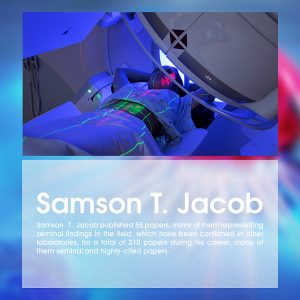How Liver Cancer Research Has Changed in the Past 10 Years


The last decade has seen a dramatic change in the way scientists treat and prevent liver cancer. The number of people dying of the disease has been rising, and the number of people with hepatocellular carcinoma has also been rising, especially among young people. Mortality rates have increased for both whites and non-whites and for people living in Kentucky. Since 2009, the death rate from cirrhosis and hepatocellular carcinoma in young people and people of color has been steadily going up.
Gene therapy
In recent years, there have been significant advances in the field of gene therapy for liver cancer. Many types of liver cancer, from primary to metastatic, are now being treated using this method. Although there are still limitations, gene therapy is a promising treatment for these diseases. This article explores the many ways that gene therapy can improve treatment outcomes. It also highlights some recent gene therapy strategies for viral hepatitis and liver cancer.
Gene therapy is an innovative therapeutic method that involves transferring new genes to cancer cells or surrounding tissues. This process can induce cell death and slow the growth of cancer cells. It is a versatile therapy that can be combined with existing cancer treatments.
Pemigatinib
In studies involving this agent, age, gender, race, and ethnicity did not influence pemigatinib clearance. In addition, FGFR2 rearrangement or fusion did not significantly affect pemigatinib clearance. The study’s population PK model also showed no meaningful association between age, sex, and the use of phosphate binders. Also, patients with mild or moderate kidney disease or hepatitis did not need to change their dose.
Researchers are working to develop advanced therapies for liver cancer patients. One ongoing study is testing CAR T-cell therapy, a type of treatment that involves altering a patient’s own immune cells to recognize tumor cells. Other research includes combination therapies with immunotherapy and targeted therapies.
Infigratinib
Infigratinib is now being investigated in a phase III study. The patients who enrolled in the study were either locally advanced or had residual disease from previous chemotherapy. Both groups showed similar response rates (PFS and DCR) to the drug.
Researchers in the NCI’s Translational Liver Cancer (TLC) Consortium are identifying biomarkers of liver cancer that may help doctors determine which patients are at increased risk for the disease. Another study is looking at personalized HCC surveillance, in which doctors match a patient’s risk level with different screening tests.
The drug is believed to stimulate cell differentiation. One recent study showed that infigratinib inhibited tumour growth in mice with HCC PDX models. Tumors treated with the drug had higher levels of differentiation markers, reduced stemness, and reduced numbers of tumor cells per field of view. Infigratinib-treated tumours showed decreased levels of hypoxic regions and increased expression of the CYP3A4 and albumin genes. The drug also reduced the emergence of resistant nodules.
Proton therapy
Proton therapy is a form of radiation treatment that is becoming increasingly popular. This type of treatment is similar to x-rays, but it works by using high-powered beams of protons to kill cancer cells. The protons travel through a machine that directs them to the target area. During the treatment, the patient has to stay still so that the tumor doesn’t move and get out of the way of the focused proton beam.
This treatment has been very successful in treating HCC. It is extremely safe and effective. It can be repeated many times in order to treat patients with different cancers. In addition, it can be used for both palliation and curing of HCC.
Clinical trials
A number of clinical trials have been conducted in the past decade to test new treatments for patients with advanced liver cancer. The hepatitis C drugs pembrolizumab and lenvatinib are two of the newer agents that have shown promise in this field. Both drugs target the VEGFR protein family.
Currently, clinical trials are the primary means of proving the effectiveness of new drugs for advanced liver cancer (HCC) patients. They have helped pave the way for the development of new treatments and have had a significant impact on the care of these patients. These trials also lay the groundwork for the use of systemic agents in the treatment of advanced HCC. The goal of these trials is to find new treatments that will help people with advanced HCC live longer and have a better quality of life.
Clinical trials for liver cancer research have made great strides in recent years. A study at the Harry S. Truman Veterans Hospital in Columbia, Missouri, in 2020, found a connection between NAFLD and the HADHA gene. In this study, mice with a gene mutation called LCHAD developed NAFLD at three months old and progressed to HCC at thirteen months old. In addition, these mice were found to have impaired HADHA gene expression, which could lead to the progression of NAFLD to liver cancer.
